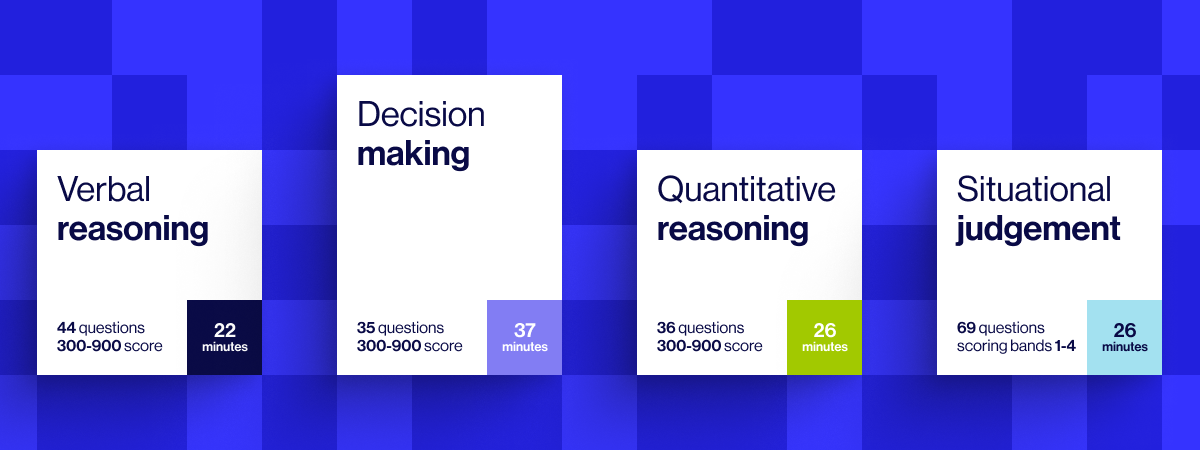
A guide to the UCAT exam
The University Clinical Aptitude Test, also known as the UCAT exam, is an additional examination that students wanting to study medicine or dentistry at university will need to sit.
Comprising 184 questions, the UCAT tests the skills students will need as a practicing medical professional. Rather than test specific subjects, the UCAT tests aptitude in things like critical-thinking, problem solving, and timed data interpretation.
Preparing for the UCAT is exactly the same as preparing for your GCSEs, and all you need is expert support, a study plan and the willingness to do the work.
To help, we’ve compiled this guide to the UCAT and how to walk into the exam full of confidence and ready to show off your skills. We’ll cover;
-
How the UCAT is structured
-
Scoring
-
Universities that require the UCAT
-
Test locations
-
Key dates
-
Fees
And, alongside this article, we offer GCSE and UCAT support from the UK’s top teachers, including live online lessons, tailored resources, and a cram course, simply click here to get started.
How the UCAT is structured
The UCAT is split into four sections; verbal reasoning, decision making, quantitative reasoning, and situational judgment. The time allowed, number of questions and scoring varies for each section.

Verbal reasoning: 22 minutes, 44 questions, 300-900 score
In the verbal reasoning section students will need to interpret and process information. They’ll read 11 passages of between 200-to-300-words and then answer four questions for each passage, with answers including; ‘true’, ‘false’, ‘can’t tell’, and an opportunity to write free text.
Decision making: 37 minutes, 35 questions, 300-900 score
Questions testing a student’s decision-making skills will consist of text or visual information that a student must match to answers. This comes in the form of multiple choice and ‘yes’ or ‘no’ statements. Students are allowed a calculator for this section.
Quantitative reasoning: 26 minutes, 36 questions, 300-900 score
The quantitative reasoning section tests a student’s ability to process data sets. They’ll encounter tables, graphs, and three-dimensional shapes, which simulates the skills needed to calculate the proper dosage to give a patient.
Situational judgement: 26 minutes, 69 questions, scoring bands 1-4
The situational judgment section tests a student’s ability to determine what is an appropriate course of action and when. Colloquially, these skills are known as ‘common sense’. This is tested through questions which ask a student to decide what is the most appropriate action for a scenario or to prioritise actions according to the context.
Scoring
The highest possible UCAT score is 2,700 and band 1.
To determine what’s a good score, check the requirements for their chosen university or universities.
Universities that require the UCAT
There are over 40 medical universities in the UK that require the UCAT:
-
Aberdeen University
-
Anglia Ruskin University
-
Aston University
-
Bangor University
-
Birmingham University
-
Brighton & Sussex
-
Bristol University
-
Brunel University
-
Cambridge University
-
Cardiff University
-
Dundee University
-
Edge Hill University
-
Edinburgh University
-
Exeter University
-
Glasgow University
-
Hull York Medical School
-
Imperial
-
Keele University
-
Kent and Medway Medical School
-
King’s College London
-
Lancaster University
-
Leeds University
-
Leicester University
-
Liverpool University
-
Manchester University
-
Newcastle University
-
Norwich Medical School
-
Nottingham University
-
Oxford University
-
Plymouth University
-
Queen Mary University of London (Barts)
-
Queen’s University Belfast
-
Sheffield University
-
Southampton University
-
St. Andrews University
-
St. George’s, University of London
-
Sunderland University
-
Surrey University
-
UCL
-
Warwick University
-
Worcester University
UCAT test locations

UCAT exams are held at Pearson VUE testing centres.
You can find your closest UCAT test centre using their online search tool.
Key dates
The exact 2026 UCAT dates are not yet confirmed, but fall into these rough time periods.
-
Mid-May - Applications for Bursary Scheme and Access Arrangement open
-
Mid-June - Test booking opens
-
Early-July - UCAT testing starts
-
Mid-September - Access Arrangement application deadline
-
Mid-September - Test booking deadline
-
Late-September - Final testing takes place and Bursary Scheme applications close
-
Mid-October - Deadline for UCAS applications
-
Early-November, results delivered to universities
Fees
To take the UCAT in the UK costs £70.
For students with financial difficulties, a Bursary Scheme is available, which must be applied for separately. It’s best to submit an application as soon as account creation opens as this ensures no fees will be required at the time of booking.